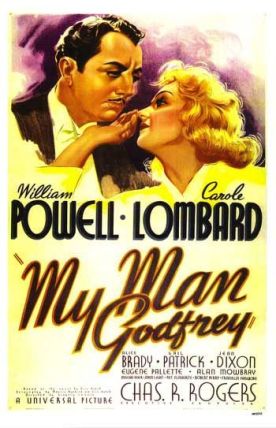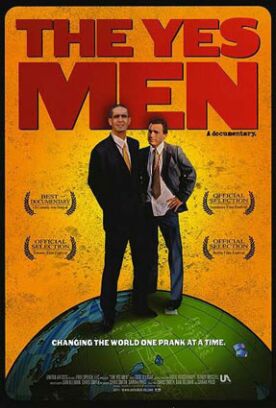Krieger und die Kaiserin, Der (The Princess and the Warrior)
The fairy-tale implications of title of The Princess and the Warrior (or, with German logic, Der Krieger und die Kaiserin), written and directed by Tom Tykwer, is both misleading and not. The film is set in the present day, in Wuppertal, Germany, and is told realistically—without even the fractured time scheme of Tykwer’s earlier hit, Run, Lola, Run. But at the same time, there is magic in it. Fairy tales can come true, and they do for the charming Sissi (Franka Potente, the Lola of Run, Lola, Run) and the psychically damaged Bodo (Benno Fürmann), who had a fight with his wife and then watched in horror as she blew herself and their car up by smoking at a filling station while he was in the lavatory.
In other words, this is a fairy tale for our times, a therapeutic romance like The Fisher King or Return to Me. Instead of getting rich and finding love as in the old fairy tales, now the idea is to get well and find love. Purge yourself of guilt and low self-esteem at the same time that you are finding your soul-mate. But it is odd that the arrival of worldly felicity seems almost necessarily to take place on two tracks simultaneously—as if just love could hardly be counted happiness without some further benison thought to make it possible. You could understand this better when people thought you had to have money to get married, but the paradigm seems to have survived even into the era of “hooking up”—as Bodo and Sissi ultimately and predictably do.
Their presumptively joyous union is effected when Bodo saves Sissi from death in an expiatory act that he doesn’t see as such—and, to be sure, he himself caused the accident that nearly killed her—while Sissi, a psychiatric nurse, saves Bodo from grief and despair in spite of his best efforts to drive her away. Just to show how hip it is, the film makes the instrument of Bodo’s capitulation to Sissi’s attempted ministrations a bank robbery that he is plotting with his brother, Walter (Joachim Król). Sissi just happens to be in the bank as the robbery is taking place—on account of one of the convolutions of plot that Tykwer so delights in—and, seeing what is going on, impulsively leaps into the rapidly unraveling robbery on the side of the robbers. You’ve got to admit, it’s a great way to teach Bodo to trust again.
In the mêlée, Walter is shot and Bodo and Sissi, barely escaping with their lives, hide out in the mental hospital where she works—which of course supplies the occasion for further reflections on the delicacy of the human psyche. Sissi, we learn, doesn’t just work there, she was born there. Her mother was electrocuted when a hair-dryer fell into her bathtub, and her father, perhaps either guilty of her murder or imagining that he is, is a patient. When they arrive, Bodo’s angry reaction to a television news report that his brother has died of his wounds is taken to be evidence of his insanity—and therefore that he is a bona fide patient and not a fugitive impersonating one. Meanwhile, one of the patients who is sweet on Sissi, played by the wonderfully creepy Lars Rudolf, is intent on murdering Bodo with the old hair-dryer in the bath-tub trick.
You can see that the psychic convolutions are as hard to follow as those of the plot, though the latter are much more pleasingly cinematic. In fact, the movie wins its worth-seeing star just for the skill of the story telling, the cleverness of the mise-en-scène, which is never less than interesting, and the character of Sissi as portrayed by the ever-charming Miss Potente. But even these assets are not all that they might be. The plot is unnecessarily complicated, as if just to show off that the author/director never actually loses the thread, while Sissy is given too much of a psychic load of her own to complement that of the damaged Bodo. And then there is the larger incoherence of the film’s moral meaning.
For although there is something to engage and interest us in Sissi’s determination to get from Bodo the “meaning” of his rescue of her—“I have to know if it was an accident you were under that truck,” she tells him; “I have to know if my life has got to change and you are the reason”— the meaning turns out to be only the fairy tale one. This might even be enough (movies can be fairy tales too), if it weren’t for the too frequent reminders in the form of the bank robbery, killing and violent insanity of the disjunction between the fairy tale world and the real one. “Nothing is meaningless,” says Sissi, but the movie itself, subverting its own fairy-tale ending, gives her the lie.
Discover more from James Bowman
Subscribe to get the latest posts to your email.








